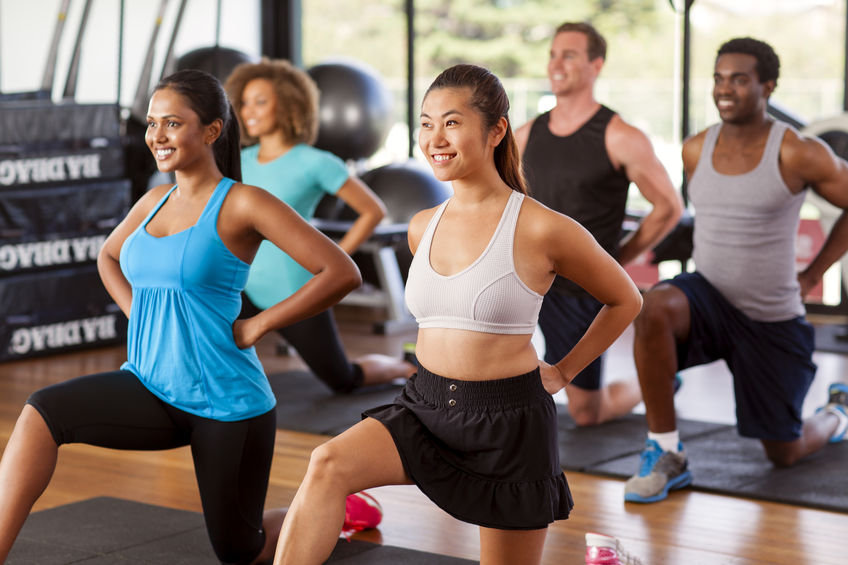The Exercise Feel Good Factor
I was having a very stressful day to the point I couldn’t focus on the projects I needed to finish pronto! I had recently been reading up on the endorphins released from exercise to calm stress. I decided to put it to the test and go for a quick 10-minute jog. It worked! The anxiety that had been tightening in my chest and shoulders seemed lighter and I was able to focus better on my tasks.
My favorite motto as a fitness professional is that exercise can cure whatever ails you.
Stress is the number one symptom immediately helped by activity. Breaking into a sweat has also made me feel better when battling a cold, headache and more recently arthritis. Those of us who suffer from swelling of the joints agree the discomfort goes away while we’re moving and is far worse after long periods of idleness.
Surely you know the main benefits of regular exercise such as healthy heart, stronger body, better posture and weight control.
If you don’t like exercise these rewards probably are not enough to motivate you. Researchers in the last decade have found evidence that some people can blame their lack of desire for exercise on their genes. According to research in the Journal Medicine and Science in Sports and Exercise some people seem to be genetically predisposed to tiring more easily from exercise or their brain and muscles find it less easy to perform or mentally appealing (2).
If you think that might be you then you need to key in on the exercise feel good factor.
Instead of dreading the work you’re going to push yourself through, think about the immediate gratification you feel right afterwards. Superficially you feel good just because you did something beneficial for your body. Physiologically you’ve released endorphins, hormones in the brain that block stress and increase the feeling of pleasure. That’s right, PLEASURE after exercise.
That means feeling crappy should be the reason you go to the gym or get outside instead of an excuse to avoid it…exercise feel good!
Michael Otto, a psychology professor at Boston University and author of “Exercise for Mood Anxiety”, says, “Failing to exercise when you feel bad is like explicitly not taking an aspirin when your head hurts. That’s the time you get the payoff.” (3)
Notice the sense of accomplishment you feel when you’ve carried in all your groceries in one trip or rearranged your furniture all by yourself.
It’s the same triumphant feeling after you’ve finished your last push-up or started your cool down after a vigorous ride on the stationary bike. It may take a while to see the results of your efforts but you can immediately bask in the euphoric afterglow, increase the oxygen flow to your brain and muscles, walk taller and enjoy a good night’s sleep. That’s the result of the exercise feel good factor.
More recent research is finding that men and women are motivated to exercise by different factors.
Women are more likely to site weight loss as a reason to sweat, while men are more likely to say they do it for health reasons. But it’s not been enough to keep many exercise haters from going consistently. Of those who do it regularly, they say they do it because they enjoy it.
The ladies who come religiously to group exercise classes tend to form a community celebrating birthdays and having coffee together afterwards. Men also like socializing at the gym but tend to enjoy a little friendly competition like a game of basketball or racquetball. This is what they look forward to every week not the fiftieth squat they’ll perform. If you watch the faces of the people exiting the gym they look more content and relaxed than those who are entering. It’s that good feeling you need to focus on that will have you canceling other appointments to make your workout, instead of the other way around.(1)
Five ways to make exercise feel good:
1. Push through the warm-up. It’s the hardest part. It takes 5-8 minutes for the aerobic metabolism to kick in carrying oxygen to the muscles to produce energy efficiently.
2. Make friends who like the same activity. Everything is easier on a team. You’re not going to skip the workout or leave early if your friend is there.
3. Sign up for fitness fund raisers. There are 5k run/walks and group exercise events that allow you to sweat for a good cause. Helping others feels good and this way you double the satisfaction.
4. New exercise shoes or clothes always put me in a good mood and make me want try them out. Or I look forward to a tasty protein shake afterwards.
5. Be a role model. Take your kids or sedentary friend to the gym or to do outdoor activities. When they’re able to join in you’ll feel great and you get to spend quality time together.
Journal about how you felt after your workout. When you need some motivation go back and read some entries.
Exercise Feel GOOD!
Make sure you discuss any exercise program or changes with your doctor first before beginning. Inform your doctor of your medical history and medical conditions; your medical professional can work with you to prescribe the right program for you based upon your medical history.
References:
1. https://www.nls.uk/scotgov/2006/0041468.pdf
2. http://well.blogs.nytimes.com/2010/05/19/phys-ed-do-our-genes-influence-our-desire-to-exercise/?_r=0












